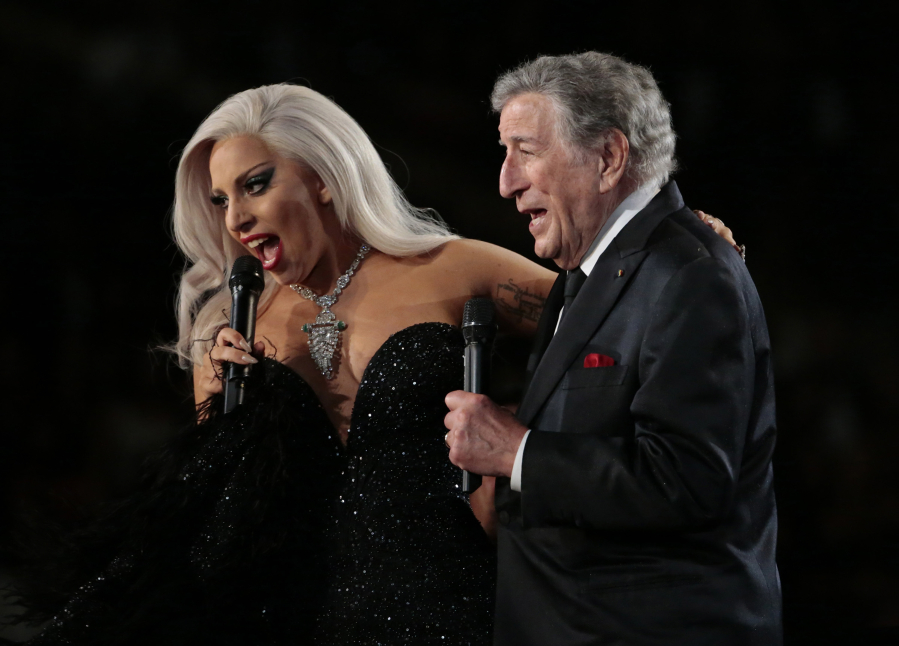LOS ANGELES — You can almost picture it: Tony Bennett, beaming and crinkly eyed at age 95, shuffling slowly to the podium with help from Lady Gaga as the in-house band strikes up one of the indelible Cole Porter numbers from their latest collaborative LP. “Love for Sale,” as it’s called, has just been named album of the year, and now — before an arena full of stars, including a teary-eyed Taylor Swift, and with millions tuned in at home — it’s time for Gaga to pay tribute to her legendary friend with Alzheimer’s disease.
An improbable scenario at next year’s 64th Grammy Awards? Perhaps. But given the Recording Academy’s long-established weakness for old-timers and cross-generational hookups — think Robert Plant and Alison Krauss winning album of the year in 2009, or Herbie Hancock doing it in 2008, or Natalie Cole and her late father, Nat King Cole, in 1992 — an emotional Gaga/Bennett victory could make for an elegant solution to what feels like the lack of a clear front-runner for pop music’s most prestigious prize.
It’s the always-unpredictable Grammys, said one music-industry insider, adding with a laugh, “I could see it happening.”
With first-round voting having opened Friday, Swift, Billie Eilish, Olivia Rodrigo and Lil Nas X are all but certain to fare well in nominations set to be announced Nov. 23. (Eligible recordings had to be released between Sept. 1, 2020, and Sept. 30, 2021; the 64th ceremony itself will take place Jan. 31 in Los Angeles.) Yet for varying reasons, none of them seems like a lock for album of the year — which leaves that long-shot opening for the feel-good odd couple with the sure-to-stop-the-show acceptance speech.



